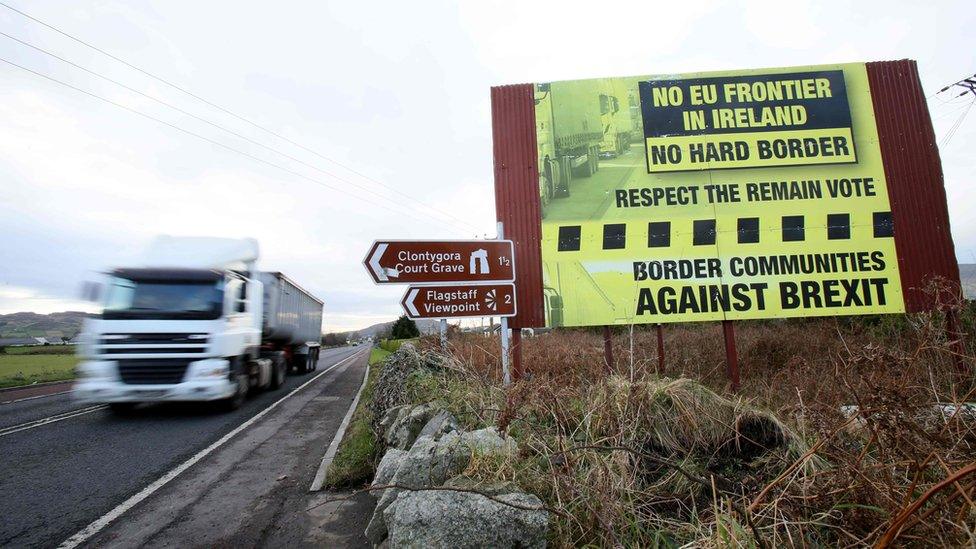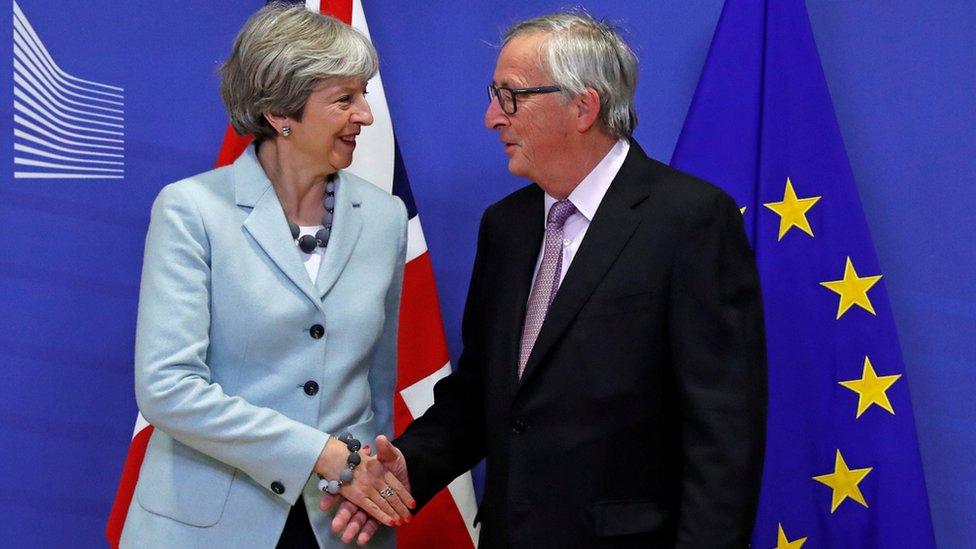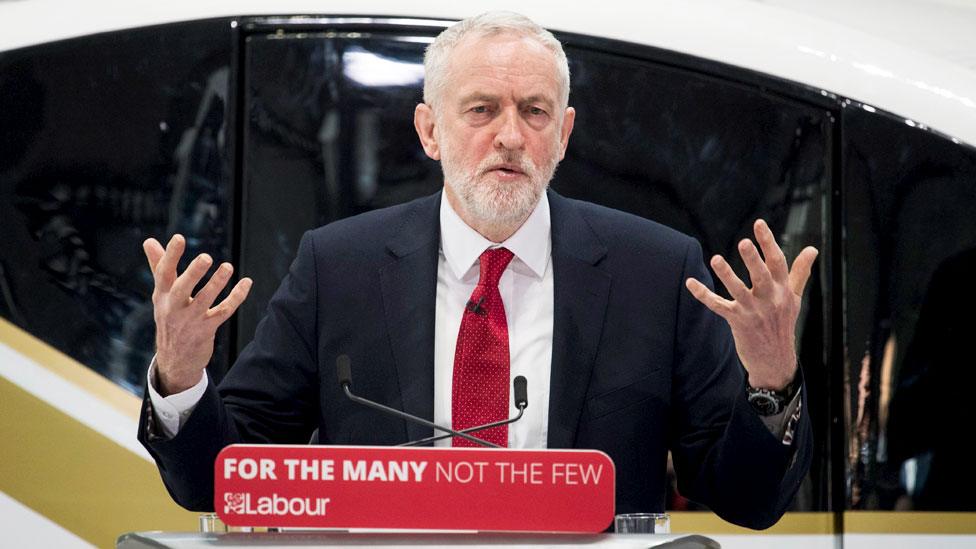Simon Coveney of 'one mind' with EU negotiators
- Published
- comments

Disagreements remain over how the Irish border should be treated after Brexit
The Irish foreign minister says he is of "one mind" with the EU's Brexit negotiators.
Simon Coveney made the comments after meeting with Michel Barnier in Brussels on Monday.
On Wednesday, the EU is expected to publish a text which will translate December's deal between the UK and EU into a legally binding agreement.
Mr Coveney said people could expect a document that was "faithful and true" to the pledges made at the end of 2017.
Meanwhile, Ireland's taoiseach (prime minister) has said full regulatory alignment should be "spelled out" in this week's draft EU withdrawal agreement.
Leo Varadkar held a telephone conversation with the Prime Minister on Monday evening.
In the December deal, the UK pledged there would be no hard Irish border in any post-Brexit circumstances.
Since then, however, the two sides have had different interpretations of what was agreed.
The sticking point concerns a UK pledge to follow EU rules relating to cross-border co-operation.
The UK agreed that, in the absence of an overall deal, it will continue to fully align with the rules of the customs union and single market that are necessary for cross-border co-operation and the protection of the all-island economy.
Mr Barnier has said there would be "a large number of rules where this coherence or alignment" would be needed.

Theresa May and Jean-Claude Juncker shook hands on a UK- EU deal in December
However, UK ministers, including the Brexit Secretary David Davis, have suggested the areas requiring alignment would be minimal.
The UK's preference is to solve the border issue in the context of an overall trade deal.
'Default position'
On Monday, the tánaiste (Irish deputy prime minister) said the legally-binding document, due to be released later this week, would focus on the "backstop" of Northern Ireland remaining aligned with EU rules, because the UK had not yet given information about its preferred solutions for avoiding a hard border.
Mr Coveney said he had a "very good meeting" with Mr Barnier, adding: "It's true to say the Irish government and the Barnier task force are of one mind in terms of how the text should look this week."
When asked if there would be an option A or B concerning the Irish border issue contained within Wednesday's document, Mr Coveney said: "The problem with putting any text around option A or option B is that we don't know what they are yet.
"So, what was agreed in December is that, in the absence of a text on A and B, that we would have a default position so that we would understand how, in the absence of a political agreement on an alternative, the issues of Ireland and Northern Ireland could be resolved in terms of maintaining a largely invisible border to protect the all-island economy on the island of Ireland.
"And so, you can't put a text around an option A until you have an option A. We don't have one yet."

Is a customs union enough?
Being outside a customs union has two main issues, tariffs & rules of origin. Does that product really originate from where you claim and thus qualify for low or no tariffs?
Both options will impose real costs on businesses but needn't necessarily mean systematic checks at the border. There would still have to be spot checks but technical and administrative arrangements can minimise these.
But if you stay in a customs union these problems disappear.
That said simply being in a customs union won't eliminate all border checks. That's because the current frictionless border involves the interplay of the customs union and the single market.
In very simple terms the single market deals with product standards: Do these products crossing our borders comply with our standards and therefore can they be sold to our consumers?
The EU is very strict on this, particularly on agri-food products.
Products of animal origin from outside the single market are subject to systematic checks at designated border inspection posts - this applies even to countries with which the EU has a trade deal.
So short of an unprecedented deal for mutual recognition on agri-food standards Northern Ireland and by extension the UK, would have to stay locked into single market rules & enforcement mechanisms to avoid checks.

Also on Monday, the Labour leader Jeremy Corbyn said he favours the UK staying in a customs union with the EU.
Shadow Brexit Secretary, Sir Keir Starmer, told BBC One's Andrew Marr Show the UK will leave the customs union in March 2019 - but Labour would seek to negotiate a new treaty that will "do the work of the customs union".
Sir Keir Starmer: "We've long championed being in a customs union with the EU"
Sir Keir said this was "the only way realistically to get tariff-free access" to EU markets for UK manufacturers and to avoid the return of a "hard border" in Northern Ireland.
On Friday, Prime Minister Theresa May is due to give a major speech outlining the future relationship the UK would like with the EU.
- Published26 February 2018

- Published30 December 2020
